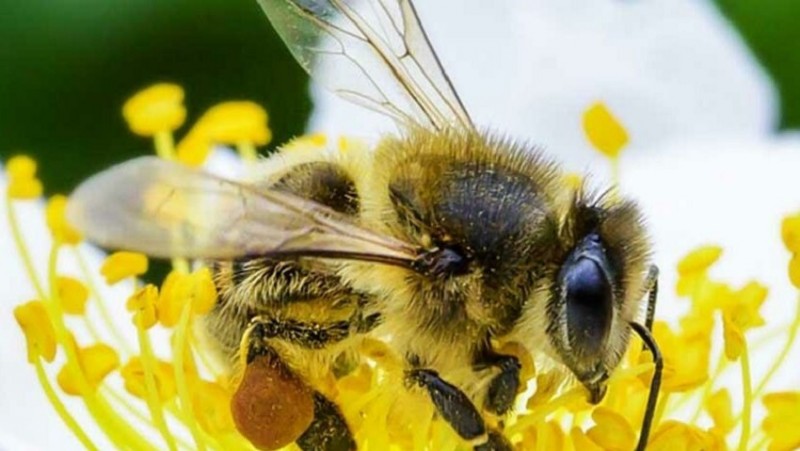
The Importance of Bees and Pollinators for Our World: In our world today, the survival of bees and other pollinators is crucial. These small creatures, including butterflies, bats, and hummingbirds, are increasingly threatened by human activities.
Pollination, however, is a vital process for the survival of our ecosystems. Nearly 90% of the world’s wild flowering plant species rely entirely or partly on animal pollination. Additionally, over 75% of the world’s food crops and 35% of global agricultural land depend on these pollinators. They not only contribute directly to our food security but also play a key role in conserving biodiversity.
To highlight the importance of pollinators, the United Nations has designated May 20th as World Bee Day. This day aims to raise awareness about the threats facing bees and other pollinators, and their significant contribution to sustainable development.
Protecting bees and other pollinators is crucial for solving global food supply issues and eliminating hunger, especially in developing countries.
As we all rely on pollinators, it is essential to monitor their decline and work to prevent the loss of biodiversity.
World Bee Day 2024: Engaging Youth for a Sustainable Future
This year, World Bee Day 2024 focuses on the theme "Bee engaged with Youth." It emphasizes the crucial role that young people can play in addressing the challenges facing bees and other pollinators.
By involving young people in beekeeping and pollinator conservation efforts, we recognize them as future stewards of our environment. This year's campaign aims to raise awareness among youth and other stakeholders about the essential role of bees and pollinators in agriculture, ecological balance, and biodiversity preservation.
Engaging young people in beekeeping activities, educational programs, and advocacy efforts can inspire a new generation of environmental leaders. These efforts can empower them to make a positive impact on our world.
Promoting more diverse agricultural systems and reducing the use of harmful chemicals can enhance pollination. This approach not only improves food quality and quantity but also benefits both human populations and the ecosystem.
By working together to protect bees and other pollinators, we can ensure a sustainable future for generations to come. Join us in celebrating World Bee Day 2024 and learn how you can get involved in promoting the health and well-being of these essential creatures.
The Importance of Bees and Pollinators for Our World
In our world today, the survival of bees and other pollinators is crucial. These small creatures, including butterflies, bats, and hummingbirds, are increasingly threatened by human activities. Pollination, however, is a vital process for the survival of our ecosystems. Nearly 90% of the world’s wild flowering plant species rely entirely or partly on animal pollination. Additionally, over 75% of the world’s food crops and 35% of global agricultural land depend on these pollinators. They not only contribute directly to our food security but also play a key role in conserving biodiversity.
To highlight the importance of pollinators, the United Nations has designated May 20th as World Bee Day. This day aims to raise awareness about the threats facing bees and other pollinators, and their significant contribution to sustainable development. Protecting bees and other pollinators is crucial for solving global food supply issues and eliminating hunger, especially in developing countries.
As we all rely on pollinators, it is essential to monitor their decline and work to prevent the loss of biodiversity. This year, World Bee Day 2024 focuses on the theme "Bee engaged with Youth." It emphasizes the crucial role that young people can play in addressing the challenges facing bees and other pollinators. By involving young people in beekeeping and pollinator conservation efforts, we recognize them as future stewards of our environment. This year's campaign aims to raise awareness among youth and other stakeholders about the essential role of bees and pollinators in agriculture, ecological balance, and biodiversity preservation.
Engaging young people in beekeeping activities, educational programs, and advocacy efforts can inspire a new generation of environmental leaders. These efforts can empower them to make a positive impact on our world. Promoting more diverse agricultural systems and reducing the use of harmful chemicals can enhance pollination. This approach not only improves food quality and quantity but also benefits both human populations and the ecosystem.
By working together to protect bees and other pollinators, we can ensure a sustainable future for generations to come. Join us in celebrating World Bee Day 2024 and learn how you can get involved in promoting the health and well-being of these essential creatures.
Read More